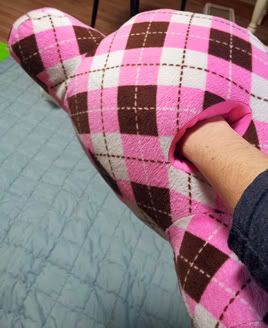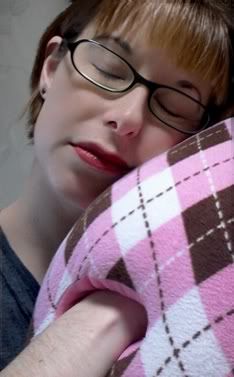"I saw classrooms in which a third of the
students slept while the teacher continued lecturing, seemingly unfazed. Gift
stores sell special pillows that slip over your forearm to make desktop napping
more comfortable. This way, goes the backward logic, you can sleep in class —
and stay up late studying." (From this article in TIME Magazine, September 2011.)
As someone who has spent a lot of time working in the
“shadow education system” of Korea – the private, after-hours ‘cram schools’ or
hagwons (학원) – I am no stranger to the notion of Korean children
staying out studying until quite late. When I was in middle school, my bed time
was 9:30pm . At the hagwon where I taught in both 2006-2007 and
2010-2011, my last middle school class of the day finished at 10pm . I had accustomed myself to the notion that Korean
children have a vastly different childhood from mine and that of most American
kids. Yet somehow I always pictured Korean mom and dad relaxing at home, having
dinner, watching TV, and enjoying having some alone time while the kiddies were
off at the hagwon. Granted, I grew up with a father who knocked off work at 5pm and was home by 5:15pm
pretty much every day. I should have realized that the lives of Korean adults
would be just as drastically different from their American counterparts as the
lives of Korean children.
Take a look at the pictures below. They're of a miniature husband pillow. It has a slot in it into which one can insert one’s arm. This makes it far more comfortable to sleep on if you’re somewhere not particularly conducive to getting comfy: desk, bus, train, airplane. I personally think this is a fantastic invention. It’s the kind of pillow referred to in the TIME article that I quoted above.
I bought this pillow when I was planning to go on an
overnight bus trip. I didn’t buy it at a kids’ store, or at a shop near a
school, or at one of the big Wal-Mart type shopping centers that offer
everything under the sun. I bought it at an office supply store in Yeouido –
one located directly across the street from my former office building. Every
single one of the people in my department had a similar pillow, and made
regular use of it.
Sleeping on the job? Well, yes. And no. Not exactly. Take a
gander at this very informative article on the work culture in South Korea. It’s entitled “the world’s hardest working countries” – although I’d say
“longest working” instead of hardest. There’s a difference… Unfortunately, the
Koreans have yet to realize this.
Our work hours at my former company in Yeouido were from 9am-6pm . We were encouraged to work overtime –
although overtime work was always *unpaid.* However, if you stayed until 8pm , you’d get reimbursed ₩7000 (roughly $7) for dinner (keep in mind, this is
in Yeouido, where $7 might get you a bowl of bibimbap), and if you stayed until 11pm , you’d get reimbursed for the cost of a taxi ride
home. So for an extra 5 hours of work, and – depending on how long a taxi ride
you’ve got – you’d probably be reimbursed $10-$15. Hardly an incentive… yet I
had coworkers brag about receiving upwards of ₩2,000,000 ($1700) in
reimbursements. Granted, that’s over a fairly long time, but still, that's a lot of bibimbap.
Now, I have nothing at all
against working overtime when there’s work that needs to be done. You’ve got a
Wednesday morning deadline for your project and it’s not finished by 6pm on Tuesday? You stay late. You’ve got an emergency
situation that needs to be handled right then? You stay late. But if there are
no pressing deadlines, no emergency situations, nothing that absolutely must be
done right then? I say go on home…. but that is most definitely NOT the Korean
way.
I never stayed past 6:15pm . This is because I never had any pressing emergencies
or un-met deadlines to contend with. And because I’d been working for 8 hours
straight and needed to give my brain a rest.
And that’s where we come to
the big difference between me and my Korean co-workers in terms of work ethic.
From 9am-6pm (except for my lunch hour), I worked. True, I may
have sent several personal emails to friends over the course of the day, but I
can multitask like a fiend. I would work steadily for 8 hours a day, taking
only the occasional bathroom break. Meanwhile, my coworkers (including
supervisors) would take lengthy smoke breaks, take 15-30 minute naps, spend
time on YouTube of Naver or Facebook… and then stay at the office until 8pm or 11pm .
Now I don’t want you to think
that my coworkers were lazy – they weren’t at all. In fact, they were all very
hard workers. They just dragged out
everything they did, and napped, and watched sports on YouTube or whatever so
that they could put in extra hours and show what good, hardworking employees
they are. I was lucky – and I suspect that this has a lot to do with the fact
that I’m not Korean – that I was never pressured to stay late. Meanwhile, there
seemed to be a lot of pressure on my coworkers to stay late every single day,
especially the younger/newer employees, who needed to “prove” to the company
that they were hardworking.
Here’s an appropriate quote
from the article I mentioned above:
"It’s the
culture," says Lee. "We always watch what the senior boss thinks of
our behavior. So it’s very difficult to finish at a fixed time." Leaving
at the official time of 6 p.m. could mean not getting a promotion or
raise.
This whole concept just
boggles my mind. I personally would much rather work for 8 hours – and do my
job well for 8 hours – and then leave and get one with my life than drag out my
assignments and stretch 8 hours worth of work into 13 to prove that I’m
“hardworking.” I just don’t get it. Of course, I also didn’t get my promised
mid-contract raise.
The de-facto work schedule
seemed to take a huge physical toll on a lot of my coworkers, who often looked
like they desperately needed a good night’s sleep. And don’t even get me
started on how they keep up this absurd ever-present practice no matter how
sick they get. Surely well-rested, relaxed, healthy employees would be more
efficient than exhausted, stressed, and often sickly ones? But it’s not the
Korean way.
![international [cat] lady of mystery](https://blogger.googleusercontent.com/img/b/R29vZ2xl/AVvXsEgnPJiUgfmMHEUcIPKDuSiTQFpnXgSofemne4WBX0VfEv-Bym8HdPHiD-iC2mNCJQog2tvPXKao_9vpRJG_vl4Yfi0ZTX_p3YpHLCie0rUHAJLgwcAb-Otj7hzc-_UkSI-yRNlpG45z8Wo/s1600/newblogtop2014b.jpg)


1 comment:
I worked for a large engineering consultant in Tampa where this same work ethic of staying at the office late to show how hard you worked was the accepted norm. Needless to say my working hard for 8 hours was not satisfactory. I should have stayed until after the workaholic boss left at 7 or 7:30 pm.
Post a Comment